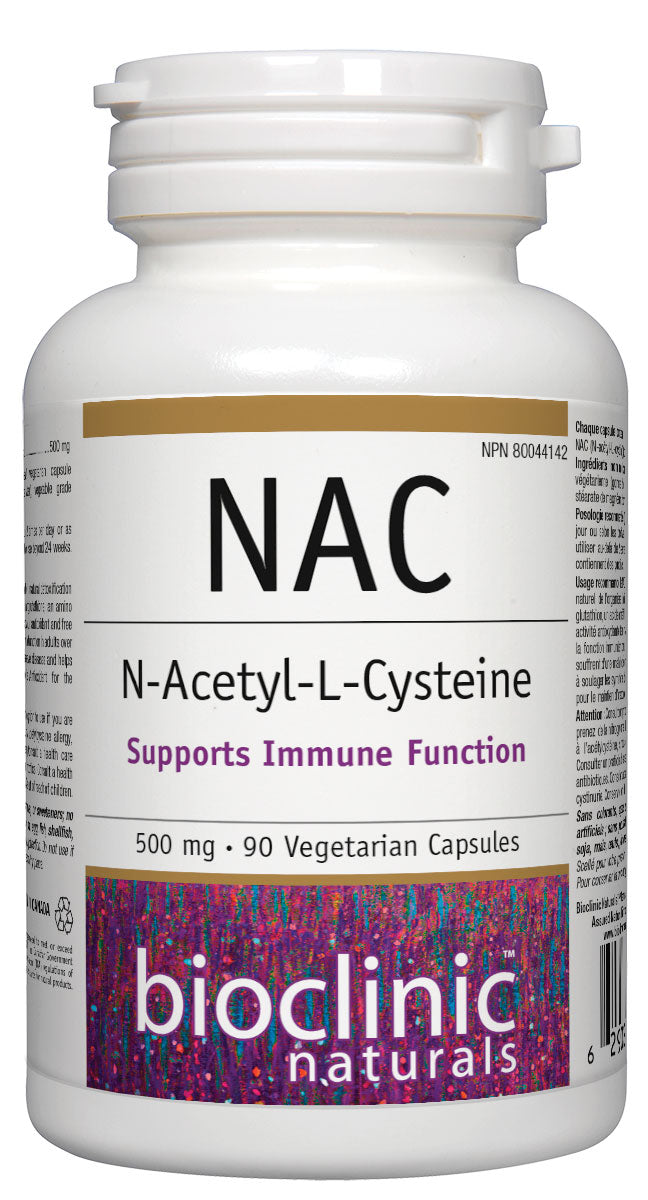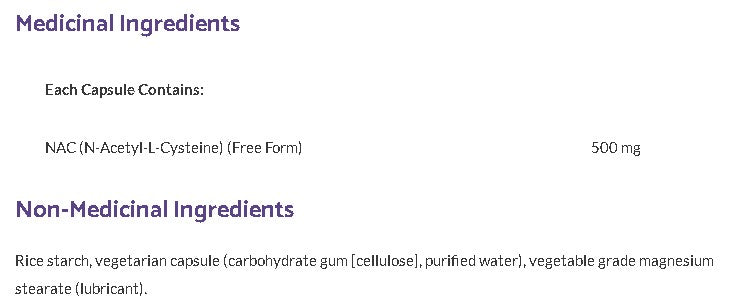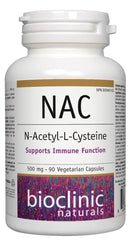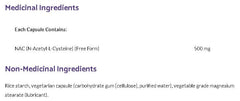



Description
x- Supports the synthesis of glutathione, a key cellular antioxidant and conjugator of many environmental toxins
- Improves endothelial function and supports nitric oxide synthesis500 mg of NAC per capsule allows for easy, therapeutic dosing levels
- Stable and well-absorbed form of the easily oxidizable amino acid L-cysteine
N-acetyl-L-cysteine (NAC) is known for its various physiological and therapeutic benefits, attributed largely to its antioxidant, anti-inflammatory, and mucolytic effects. It is well known to increase glutathione, an essential intracellular antioxidant, by providing a stable form of L-cysteine, the limiting factor in glutathione synthesis. The number of conditions with impaired glutathione homeostasis continues to grow, including not only cardiovascular, neurodegenerative, pulmonary, and age-related diseases, but there is also increasing clinical recognition of metabolic disorders linked to exposure to environmental toxins, such as diabetes and persistent organic pollutants. By restoring glutathione levels, NAC is also well established as the most effective treatment. for acetaminophen toxicity.
Additionally, NAC's ability to cleave disulfide bonds gives it efficacy as a mucolytic agent, with clinical benefit for people with COPD and pulmonary fibrosis. Breaking disulfide bonds may also be the same mechanism by which it lowers homocysteine and improves endothelial function in the coronary artery. disease. NAC has immunomodulatory and anti-inflammatory effects, improving flu symptoms and SLE activity. By modulating glutamatergic and neurotropic pathways, NAC has also been shown to benefit schizophrenia, bipolar disorder, and autism.
Posologie
xInfos nutritionnelles
x- Choosing a selection results in a full page refresh.

